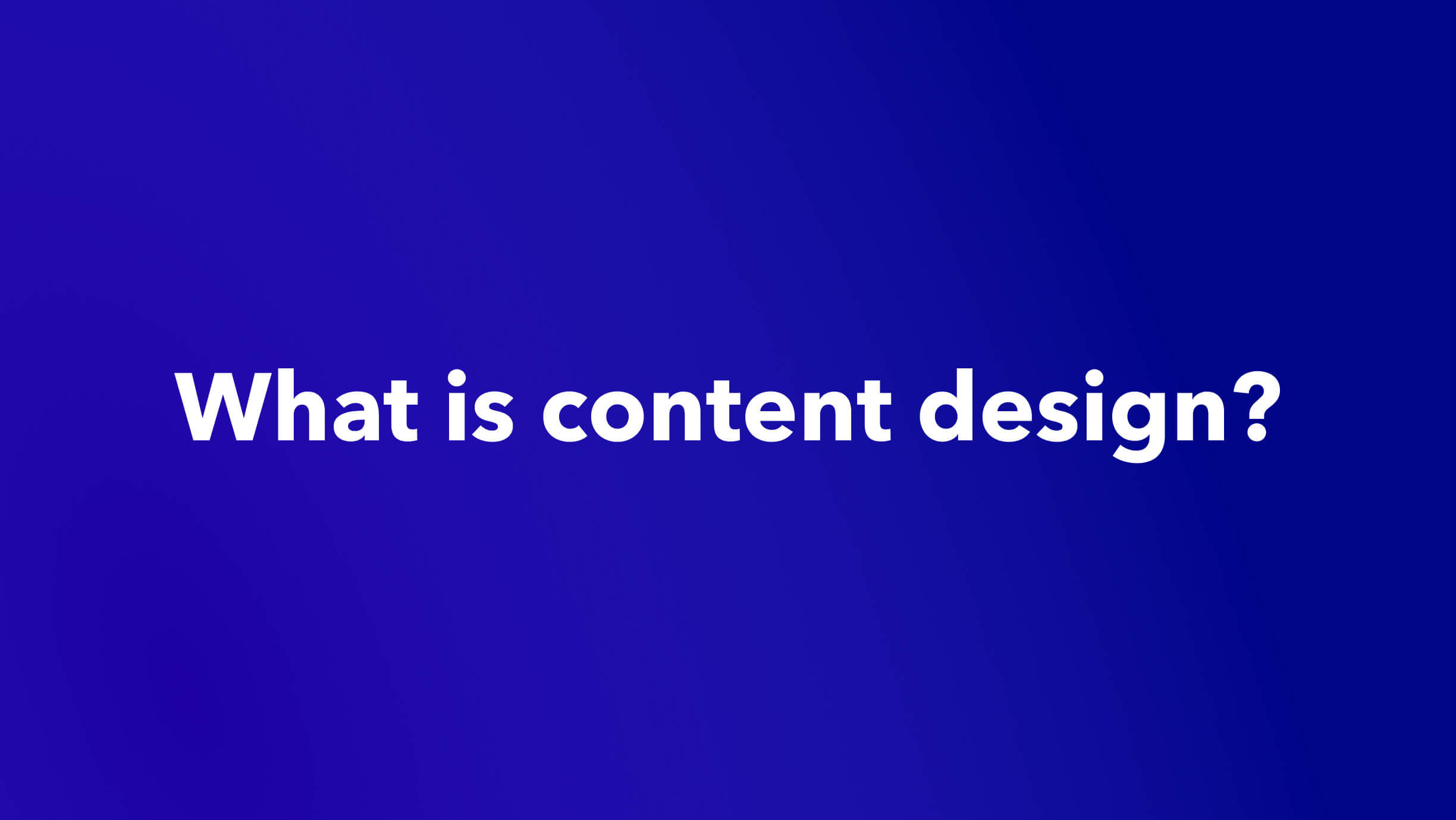
Content design is where words, design and user needs meet. Good content design is doing all three really, really well. Content Designers make sure your users can do what they need to, when they need to, easily.
The simplest and most straightforward definition of content design was written by Sarah Winters.
"It's about using data and evidence to give the audience what they need, at the time they need it and in a way they expect."
Sarah Winters, Content Design
But if only it were that straightforward.
To navigate those steps, content designers draw from the same skillset as any UX practitioner. They manage stakeholders, run workshops, audit the end-to-end experience, analyse and map competitors, develop roadmaps and figure out a pragmatic way to get your company or organisation from A to B.
...at most.
You can design an entire experience with a Content Designer. They can decide and inform:
As well as how to usability test and research all of the above.
Content Designers know that before you write anything, you need to understand the problems facing your audience.
We absolutely hate guesswork, and we can spot it a mile away. We've learned from years of research and experience, that the solution to your user's problem is very rarely more words.
Over my career, I've probably deleted more than I've written.
I've met and worked with content designers who used to be:
And that means no two content designers have the exact same skillset.
Some content designers are incredibly visual and can wireframe, prototype and mock-up experiences.
Others are super experienced in planning and facilitating user testing.
One thing that's consistent across all good content designers, is their commitment to trying to figure out and deliver the best possible user experience. And the belief that this naturally helps all of your business goals.
Content is an output. Content design is a process.
A lot of businesses are guilty of seeing the words in an interface as the last piece of the puzzle. I've seen enough desktop-width page mockups filled with placeholder content to last me a lifetime.
But the problem isn't just the 'Lorem Ipsum'. It's that they've already assumed that the best place for that content is on the website, on a desktop.
Content designers are most useful from the very beginning of the design process. Working with researchers, designers, business analysts, architects and delivery managers to understand what your user needs from you, and when.
Only that way, you can hit the sweet spot. You design the correct solution to your user's needs - and understand how to pragmatically get there as an organisation.